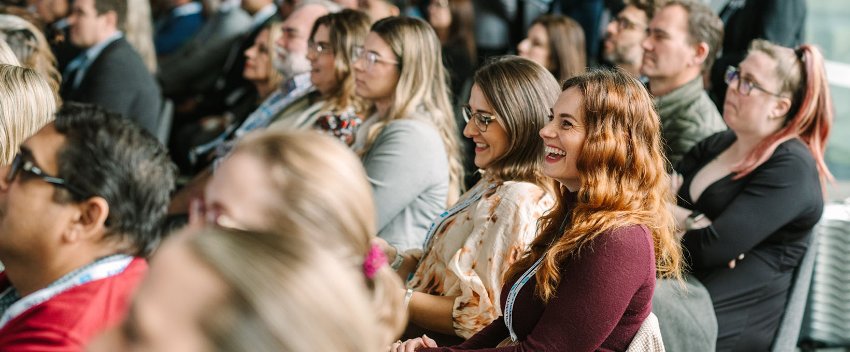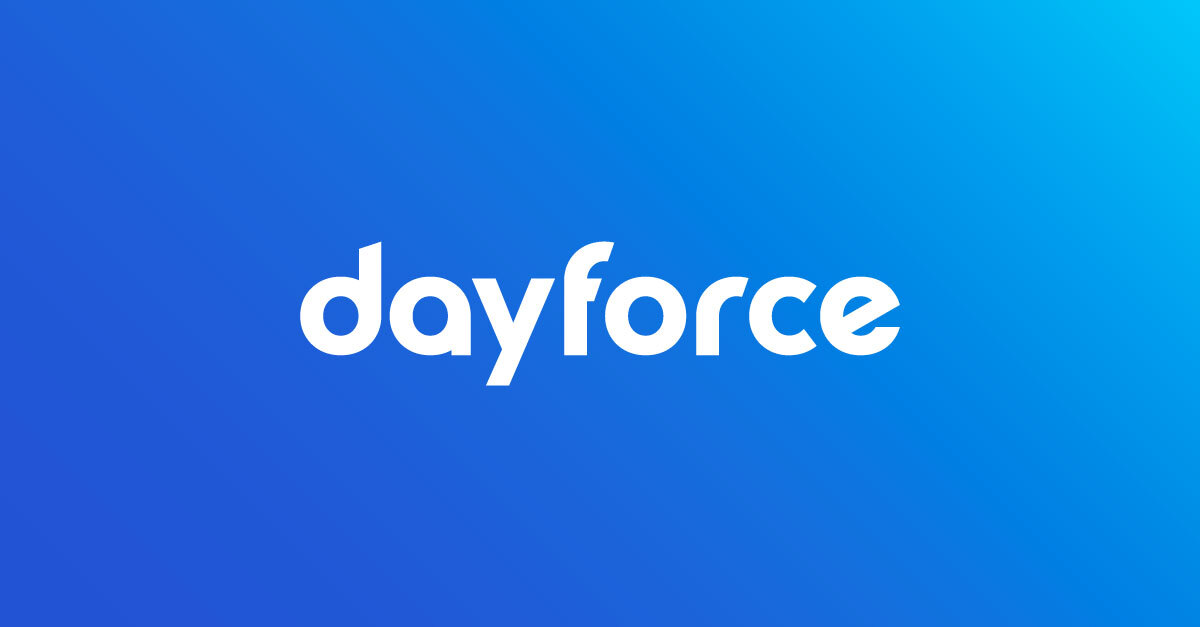Inside the HR transformation playbook: Practical lessons from Dayforce Summit Melbourne
HR leaders across industries reveal what it takes to implement successful HR tech transformation in complex workplaces.

Table of Contents
At Dayforce Summit Melbourne, HR leaders from Funlab, Orica, Ingenia, Homestyle Aged Care, and Viva Energy shared the real-life strategies driving their people-first HR transformations.
The lessons from what's actually working for HR leaders in complex environments took centre stage. From managing compliance across 48 countries to engaging 18-year-olds in their first job, these leaders spoke candidly about what they've learned implementing HR tech transformations in their organisations.
Here’s what they shared, and what every HR leader navigating change should know.
Start by understanding your people
Funlab’s transformation challenge began with gaining a true understanding of their workforce. With 80% of employees aged between 18 and 21, most had grown up with mobile-first experiences and seamless digital access to everything they needed. When it came time to redesign HR systems, there was no room for multiple logins or clunky workflows.
“We’re all busy, so it’s tempting to assume you know what your workforce needs,” said Chelsea Mannix, Funlab’s Chief People Officer. “But there’s no point designing something that sounds good on paper. We took the time to really listen to our people and design an experience our people want and will use.”
That mindset carried through every stage of the transformation. Funlab assigned product owners for each module; specialists with end-to-end responsibility for ongoing updates, process improvements, and compliance. Mannix suggested that all organisations adopt a similar approach.
"Whenever I speak with peers who might be struggling with transformation, I find it's because they don't have that dedicated ownership and resource allocation," she shared. "I recommend assigning a specialist as the product owner for each module during implementation, then keeping them on in the business. This has been particularly helpful as we're now in our third country implementation."
Maintaining momentum proved just as important. The HR team found creative ways to keep change engaging the workforce, such as hijacking meetings and communications channels, handing out T-shirts and badges, and customising The Hub to reflect Funlab's unique tone and brand voice.
"The truth is, these things can be boring for some people," Mannix admitted. "So we put in the effort to make them engaging."
Plan like success depends on it
Orica operates at a significant scale, with 14,000 employees across 48 countries and 34 different payroll systems. For them, success began with a deep investment in planning and preparation.
The team spent an entire year on this before looking for a vendor. “We mapped the current state in every country,” said Matt Stewart, Senior Manager of Program Delivery. “That meant understanding how each location worked, what the risks were, and what needed to change.”
They also designed their ideal future state and brought that vision into the RFP process, giving them a clear edge when evaluating vendors. “It gave us a big head start when we went to market,” Stewart added. “And it’s helped us stay on budget.”
For Stewart and his colleague Stacey Brewer, VP of HR Operations, the technical capabilities a vendor provides make up only half the equation. "You need a partner who gets what you're trying to do, shares that same excitement, and is willing to have open and honest conversations," Brewer shared. “Because there will always be problems, and you want someone who'll roll up their sleeves and solve them with you."
To manage compliance complexity across so many regions, Orica established a structure where in-country experts were integrated into a broader governance model. "We had people on the ground who understood the legislative requirements and how things are done culturally," Stewart explained. These individuals reported to one of five regional hubs, which connected directly to the global PMO. This structure helped Orica balance standardisation needs with local compliance requirements.
Building a culture that carries change
At Ingenia, where 70% of the 1,200-strong workforce don't have laptops, and multiple awards need to be managed, human connections were always going to play a key role in transformation.
For Hayley Nuttall, Head of People & Culture, building strong, longstanding relationships with frontline leaders was critical. “They were heavily involved in assessing Dayforce, defining what success looked like, and working out what would make their lives easier,” she explained. “So they were very much on the journey from the beginning.”
Because Ingenia's implementation team was lean and their operations geographically spread, they relied on those same managers to become advocates and in-house trainers. Early buy-in was essential.
Rebecca Ford, HR Systems Lead, reinforced the importance of communication. “One of the biggest challenges our frontline managers face is award interpretation and compliance,” she said. “So we err on the side of what some might call over-supporting and over-communicating, even though we don’t view it as that.”
Monthly webinars, award cheat sheets, and plain-language updates help simplify complexity. “We’re meant to be the HR experts,” Ford said. “So we focus on giving managers what they need to succeed and focus on their day job, without expecting them to become HR specialists.”
When challenges came up, they leaned on their network. “The Customer User Group facilitated by Dayforce has saved us more times than I can count,” said Nuttall. “There’s always someone you can message to say, ‘Is this how it’s working for you?’”
Ford added, “Seeing how others use the system and getting that different lens has been critical.”
Create capability before you need it
Dawn Griffiths, General Manager of HR at Homestyle Aged Care, knows transformation is a people business. “It comes down to the team you have,” she said. “Find the team members who have the capability and are willing to stretch. Give them space to grow and backfill their roles.”
That approach echoed strongly in Jason McNamara’s experience at Viva Energy, where he helped lead the separation of Coles Express from Coles and launch a new business under tight time constraints. “We pulled key people out of the business and backfilled their roles,” he said. “That deep, functional knowledge was embedded in the project, day in, day out.”
This helped create a collective vision that kept people focused. “That one-team mentality was crucial,” McNamara said. “It helped make sure everyone was invested in the same overarching business outcome.”
Adopt your approach to the timeline you have
While the team at Orica could invest a year on planning, McNamara acknowledged that others have no choice but to move fast. At Viva Energy, there was no option to delay as the deadline was fixed.
“We didn’t have the luxury to plan for a year,” said McNamara. “We had to get to a compliant, minimal viable product quickly so we could migrate and turn off the old system.” To achieve this, the team adopted an agile, iterative delivery model, something that felt unfamiliar in the context of enterprise HR transformation.
“It was a bit of a challenge to the traditional approach,” said McNamara. “But the strong partnerships we built helped with this perspective shift”.
Real progress starts with real connections
Every lesson shared at the Dayforce Summit came from leaders who’ve done the hard yards navigating complexity, driving change, and building systems their people actually want to use.
The consistent thread was that HR transformation is never just about technology. Success comes from listening, planning, assigning ownership, communicating, and leaning on your peers and experts when it counts.
You may also like:
Ready to get started?

